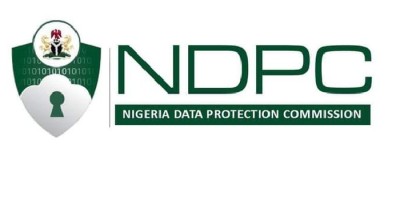Reforming The Nigerian Oil And Gas Sector - The 2024 Executive Order And Directives
Posted on Thu 14 Mar 2024
- Download Resource
- Introduction
The status of the Nigerian oil and gas industry as the dominant contributor to Nigeria’s external reserves undoubtedly serves as a pointer to the economic importance of the sector to the nation. Thus, fixing the Nigerian oil and gas industry has a significant positive impact on the ongoing macro-economic challenges that the nation is facing. The overarching importance of the Nigerian oil and gas sector to the overall wellbeing of the Nigerian economy may explain the continuous efforts by the Federal Government of Nigeria (“FGN”) to improve the investment and operational climate in the said sector, with the aim of attracting home-grown and international investors.
Indeed, in furtherance of the FGN’s continuing drive to boost the attractiveness of the oil and gas sector, the President of the Federal Republic of Nigeria and the Minister of Petroleum Resources, President Bola Ahmed Tinubu, on February 28, 2024, signed one (1) executive order and two (2) directives (the “Executive Orders”) aimed at introducing positive reforms to the oil and gas sector. These Executive Orders put in place, fiscal incentives for certain types of non-associated gas projects, reduce contracting costs and timelines in the sector, as well as obliterate any leakages impacting the compliance with local content requirements within the Nigerian oil and gas sector.

We have in this newsletter, highlighted the key changes introduced by the Executive Orders and the impact we anticipate same may have on the industry.
- Oil and Gas Companies (Tax Incentives, Exemption, Remission, etc.) Order 2024 (“Tax Incentive Order”)
Wholistically, qualifying non-associated gas (“NAG”) projects now enjoy incentives pursuant to the Tax Incentive Order, and these incentives as currently established, will ultimately engender a more investor-friendly fiscal regime in the Nigerian oil and gas sector.
Firstly, NAG greenfield developments in onshore and shallow water locations, that have a first commercial production date that occurred on or before January 1, 2029, shall, where the hydrocarbon liquids (“HCL”) content:
I. does not exceed 30 barrels per million standard cubic feet (“MMSCF”), enjoy a gas tax credit at the rate of US$1.00 per thousand cubic feet (“MCF”) or 30% of the fiscal gas price1, whichever is lower; and
II. exceeds 30 barrels per MMSCF, but is lower than 100 barrels per MMSCF, enjoy a gas tax credit at a rate of US$0.50 per thousand cubic feet, or 30% of the fiscal gas price, whichever is lower.
Secondly, any greenfield NAG project with first commercial production after 1st of January, 2029 shall be eligible for gas tax allowance, at a rate of US $0.50 per MCF or 30% of the fiscal gas price, whichever is lower, provided the HCL does not exceed 100 barrels per MMSCF.
Please note that the HCL content of the NAG Projects will be as determined in line with a Guideline that will be issued by the Nigerian Upstream Petroleum Regulatory Commission. Additionally, the tax credit granted under the Tax Incentive Order is expected to apply for a maximum period of ten (10) years, after which it shall become a tax allowance, claimable in accordance with the provisions of the Tax Incentive Order.
Instructively, any tax credit accruing to greenfield NAG projects in any year shall not exceed the income tax payable by the company for that year, and shall not be combined with any incentives for the same greenfield NAG projects applicable under the Associated Gas Framework Agreement.

Additionally, the Tax Incentive Order provides that gas companies undertaking new and ongoing projects in the midstream oil and gas industry, which is subsisting as at the date of the Tax Incentive Order, shall be granted a gas utilization investment allowance on qualifying expenditure on plant and equipment incurred by the company, which shall be utilized to reduce the company’s assessable profits in the qualifying year. The rate of the gas utilization investment allowance shall be 25% of the actual expenditure incurred on such plant and equipment purchased.
Please note that the gas utilization investment allowance shall not prejudice the applicability of any other allowable deductions, allowances, and incentives applicable to the company under the Companies Income Tax Act or any other applicable legislation.
Finally, the Tax Incentive Order mandates the Minister of Finance to introduce fiscal incentives to ensure that investments for deep water oil and gas projects achieve a competitive internal rate of return. However, in the interim, and pending the Minister’s compliance with the Tax Incentive Order, the Ministry of Finance Incorporated and the Ministry of Petroleum Incorporated, being shareholders of Nigerian National Petroleum Company Limited (“NNPCL”), are mandated to take steps to ensure that NNPCL considers and implements commercial enablers for new brownfield and greenfield investments in the deep water.
Presidential Directive on Local Content Compliance Requirements, 2024 (“Local Content Directive”)
The President of the Federal Republic of Nigeria and Minister of Petroleum Resources issued the Local Content Directive in order to prevail on the Nigerian Content Monitoring and Development Board (“NCDMB”) to ensure that its implementation of the Local Content Act: (a) considers the practical challenges of insufficient in-country capacity for certain services; and (b) does not hinder investments or competitiveness in the oil and gas projects in Nigeria.
Specifically, the Local Content Directive seeks to plug leakages in the industry, as it expressly empowers the NCDMB to reject a Nigerian Content Plan (“NCP”) that has an intermediary entity that lacks the essential capacity to perform the services stated in the NCP. Additionally, any NCP approved by the NCDMB must show genuine and demonstrable capacity of the company to execute the relevant project or activity within Nigeria.
Finally, the Local Content Directive empowers the NCDMB to develop guidelines for accessing and verifying the capacity of companies seeking contracts for specific activities under the Local Content Act.
Presidential Directive on Reduction of Petroleum Sector Contracting Costs and Timelines, 2024 (“Contracts Directive”)
Over the years, the contracting process in the Nigerian oil and industry has been overly protracted, due to the bureaucracy involved in obtaining requisite approvals for such contracts. Consequently, the contracting cycle was typically delayed, and this impaired the ability of the operators and service providers to speedily conclude the requisite projects, which in turn, negatively impacted the economic projections of the FGN, as well as the return on investment of other investors.
In a welcome development, the President of the Federal Republic of Nigeria and the Minister of Petroleum Resources issued the Contracts Directive, with the aim of reducing contracting costs and timelines within the sector, by shortening the procedure for getting approval for contracts, in line with global best practice.
Specifically, the Contracts Directive seeks to simplify and compress the contracting cycle to a period of not more than six (6) months, increase the duration for third party contracts, as well as raise the contract approval thresholds to accommodate the prevailing rate of inflation.
Instructively, the Contracts Directive states that NNPCL’s consent for the award of contracts and procurement of same under Production Sharing Contracts ("PSC”) or Joint Operating Agreements ("JOA"), shall only be triggered in relation to a minimum financial threshold of Ten Million United States Dollars ($10,000,000.00), or the Naira equivalent determined at the NAFEX FMDQ exchange rate, or any other platform determined by the Central Bank of Nigeria. Also, the Ministry of Finance Incorporated and the Ministry of Petroleum Incorporated are mandated to take steps to procure that NNPCL amends the JOAs or PSCs to alter the procurement threshold and ensure that the threshold is reviewed and adjusted annually, in accordance with the rate of consumer inflation disclosed by the National Bureau of Statistics.
NNPCL, NNPC Upstream Investment Management Services (“NUIMS”) and NCMDB are also mandatorily required to collaborate with industry stakeholders to simplify the contract approval process and adopt a single-level approval by NUIMS and NCDMB at each contract stage, including the prequalification, technical, commercial, and final approval stages.
Additionally, the consent and approval timelines required pursuant to the terms of PSCs or JOAs, including the communication of the decision by NNPCL and NUIMS in this regard to an applicant, shall be within fifteen (15) days from the date of submission of the relevant application. The failure of NNPCL or NUIMS to communicate the sufficiency or otherwise of an applicant’s application within the timeframe provided will result in a deemed approval of such application.
NCDMB is also required to review any NCP and communicate its decision within ten (10) days, as stipulated under the Local Content Act. In the absence of any communication from NCDMB, the NCP will be deemed to have been approved upon the expiration of the stipulated timeline. Similarly, for all other applications to the NCDMB that do not have stipulated timelines, NCDMB is required to respond within fifteen (15) days of NCDMB’s receipt of the request, otherwise such request would be deemed to have been approved.
Finally, the Contracts Directive provides that the duration of third-party contracts awarded pursuant to a PSC or JOA should be increased from three (3) years to (5) five years, with the option of renewal for an additional two (2) years, after the expiration of the initial five (5) year term.

Conclusion
We believe that the Executive Orders are a good development in the Nigerian oil and gas sector, as the directives contained therein will facilitate efficiency in the contracting processes, plug leakages in the local content regime whilst signaling to investors in the gas sector, particularly those seeking to exploit non-associated gas resources, that their investments will ultimately thrive and not be eroded.
On the balance, these Executive Orders are a breath of fresh air to the Nigerian oil and gas industry, and the President of the Federal Republic of Nigeria and Minister of Petroleum Resources should be commended for this intervention. Our reasonable expectation is that the multiplier effect of these Executive Orders will be to unlock investment and stimulate efficiency in the Nigerian oil and gas industry, which will ultimately increase investor footprint and more viable projects in the oil and gas sector. However, as with many regulatory interventions in Nigeria, the success of the Executive Orders will be dependent on the implementation of same, especially with regards to amending subsisting laws and contracts to give effect to the Executive Orders.
The Grey Matter Concept is an initiative of the law firm, Banwo & Ighodalo.
DISCLAIMER: This article is only intended to provide general information on the subject matter and does not by itself create a client/attorney relationship between readers and our Law Firm or serve as legal advice.
1. Fiscal gas price is defined in the Tax Incentive Order to mean the same price used for the determining royalties under the Petroleum Industry Act, 2021.















